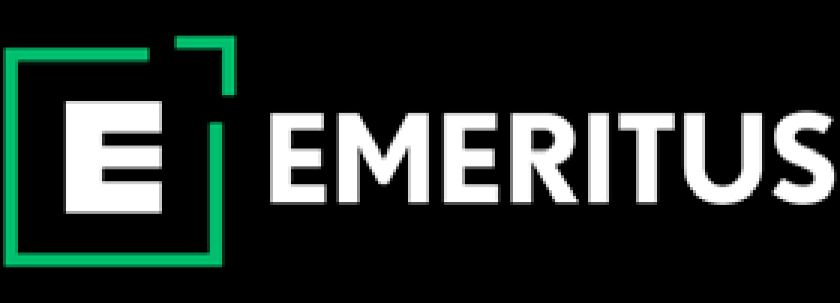How to Become a CHRO and Create Value From Human Capital

Numbers don’t create value. People do. In the present day, it is heartening to see more and more organizations recognize this over the win of technological advances. However, research shows that business leaders worldwide view human resource management as a significant challenge. Therefore, recruiters are on the lookout for proficient Human Resources (HR) managers to tend to their biggest assets—the employees. And the person who leads this effort is the e chief human resources officer (CHRO). If the idea of nurturing talent and work environments excites you, you will find this account of how to become a CHRO useful.
What is a CHRO?
As a top-tier management executive, the CHRO is responsible for overseeing and managing human capital within a company. In addition, they are responsible for all its employees and various other HR systems that comprise the HR setup of the organization.
Cut-throat competition within the talent pool has heightened the importance of the HR function across industries. As a result, all organizations rely significantly on HR management for improved efficiency, impact, and revenue. This includes every kind of organization be it established multinational companies, not-for-profit organizations, or government agencies. In addition, the rapid evolution and adoption of HR software and government compliances have also contributed to HR’s growing significance.
All the factors mentioned above have led to the elevation of the most senior HR manager to a C-suite executive, namely, the CHRO. The CHRO has equal access to the Chief Operating Officer (CEO) as, say, the chief finance officer (CFO) and is closely involved with the inner workings of the company.
Also Read: How To Make a Successful Career in Human Resource Management (HRM)?
How to Become a CHRO
If the 80s were the age of CFOs, then the 2020s will be the age of the CHRO. A Harvard Business Review article from 2015, had predicted this shift in the role of the CHROs. So if you want to know how to become a CHRO, you must contend with the evolving nature of this role. The path we have put together, is the standard one for your understanding and it includes the following:
Step 1: Get the Education You Need
If you’re wondering how to become a CHRO, you must first fulfil appropriate educational requirements. Obtaining a Bachelor’s degree in human resource management is a good place to start as it schools learners in the fundamentals of the subject. In addition, such degrees equip learners with indispensable HR skills, such as a working knowledge of employment law, technology, workforce planning, and project management. Furthermore, a Master’s in Business Administration (MBA) greatly boosts one’s chances of reaching the top of the ladder. It offers that extra edge, and leadership skills, that are essential to becoming an efficient CHRO.
Step 2: Gain the Necessary Experience
Although education is a must, nothing can replace the benefits of relevant experience in the field. Although the number varies from organization to organization, the average experience necessary would be approximately 8 to 10 years. CHROs, before being designated, usually work as senior HR managers or HR specialists.
Step 3: Develop Leadership Skills
Efficiency and growth may come from years of experience, but long-lasting impact only comes from visionary leadership. Historically, corporations have relied on business leaders to steer the ship and drive meaningful change. As a widely sought-after skill, leadership involves key skills, like relationship building and agility, that take businesses to greater heights and establish a legacy that is hard to match. To develop the requisite leadership skills, you can explore Emeritus leadership courses from the best global universities.
Step 4: Develop Executive Presence
As a leader, executive presence and leadership are synonymous because one of your primary duties is to motivate and inspire your team members. Developing executive presence can take time and experience. However, many possess certain innate traits that make them naturally authoritative and confident. Defining one’s leadership style, investing in learning tools, and having a positive, focused mindset are ways to develop executive presence.
Step 5: Expand Your Influence
The C-suite is a privilege afforded to the best of the best, and the ability to influence plays a significant role in getting there. The importance of expanding your influence lies in its power to shift mindsets. An influential leader can drive long-lasting, meaningful change while being adept at identifying emotions that underlie workplace behaviours.
Step 6: Master Human Resources and Team Management Skills
A reliable CHRO has exceptional people skills that make them good at team management, motivating others, and inspiring them to go the extra mile. Therefore, grasping human resource skills is desirable for a reliable leader, especially one whose professional life is centred on managing and overseeing people.
Step 7: Meet With Other Great Leaders
As they say, network network network. This activity has virtually no drawbacks, but it can be enriching. Interacting with industry leaders not only offers you a glimpse into their knowledge base honed through years of experience, but it also allows you to be known. While learning how to become a CHRO, aspiration goes a long way, and spending quality time with veterans is always a plus.
Do You Need a Master’s Degree to Become a CHRO?
While a Bachelor’s degree in HR management and other related fields is a prerequisite, a Master’s in business administration greatly boosts your chances of reaching the top-tier of management positions. An MBA or other associated Master’s degrees equip the learner with skills that give them a considerable edge over competitors, in addition to exposure, the opportunity to network, and a personal brand value. Owing to such reasons, most professionals pursue a Master’s in their attempt to become a CHRO.
What Does a CHRO Do?
Now that we understand how to become a CHRO, let’s dive into the duties and responsibilities of the position. As rewarding as it is, managing human capital can pose a formidable challenge to even the most experienced professionals. In this regard, a CHRO plays an invaluable role in ensuring operational efficiency, fiscal growth, and the overall performance of a company. From being the leader of the pack to a strategic decision-maker, the CHRO makes for robust leadership and fulfils several essential functions of an organization.
Executive Duties of the CHRO:
- Serve as an advisor to the top management on all issues regarding HR, including formulation of strategy and HR policies.
- Draw up future staffing requirements, allowing companies to reach their business goals with the help of quality talent.
- Monitor employees and their progress over time.
- Lead employee relations by supervising staff benefits administration, labour relations activities, such as collective bargaining, and other associated activities.
- Monitor HR policies and HR department activities to ensure compliance with public policy.
- Resolve workplace conflicts and coordinate between staff and management.
- Ensure compliance with employment laws, stay updated on recent developments, and plan accordingly.
- Through a thorough screening process, formulate robust talent acquisition guidelines and strategies to hire the best potential candidates.
- Offer staff training and the space to develop their skill set, leading to professional and personal growth.
What Skills are Important for a CHRO?
A CHRO, in addition to being an efficient leader, has an analytical bent of mind, is strategic in their decision-making, and is performance-oriented. While some are natural-born leaders, most skills required to become a CHRO can be learned with time and experience.
Important Skills for a CHRO:
- Team management, talent management, and budgeting skills
- Excellent written and verbal communication skills
- Conflict-resolution and negotiation
- Strong supervisory and strategizing skills
- Thorough knowledge of employment laws, HR policies, and HR information systems
- Trained in ethical business practices
- Relationship management and cultural awareness
Is CHRO a Good Career Option in India?
Now that you have understood the responsibilities of a CHRO, you can clearly understand that it is a remarkable career opportunity for all HR professionals. It is regarded as one of the most important roles across all organisations in India. These professionals don’t just enjoy remarkable salary benefits but are also the senior-most executives of an organisation.
As a CHRO, you will get a remarkable opportunity to create value, develop policies, and provide inclusive opportunities for others. Considering the cruciality of the position, the role of a CHRO is both challenging and demanding. And this requires firm leadership.
Wrapping Up
Being a CHRO is no easy task, but the rewards are fulfilling and prestigious. If you want to become a CHRO, you should also consider the Chief Human Resources (CHRO) Program at Wharton Executive Education. You will learn through online sessions, including fireside chats and guest lectures from leading researchers and global industry leaders.
The CHRM role pushes you to strive for further growth and success. You are also invited to learn more about the online human resource management courses from Emeritus, along with popular leadership courses!






